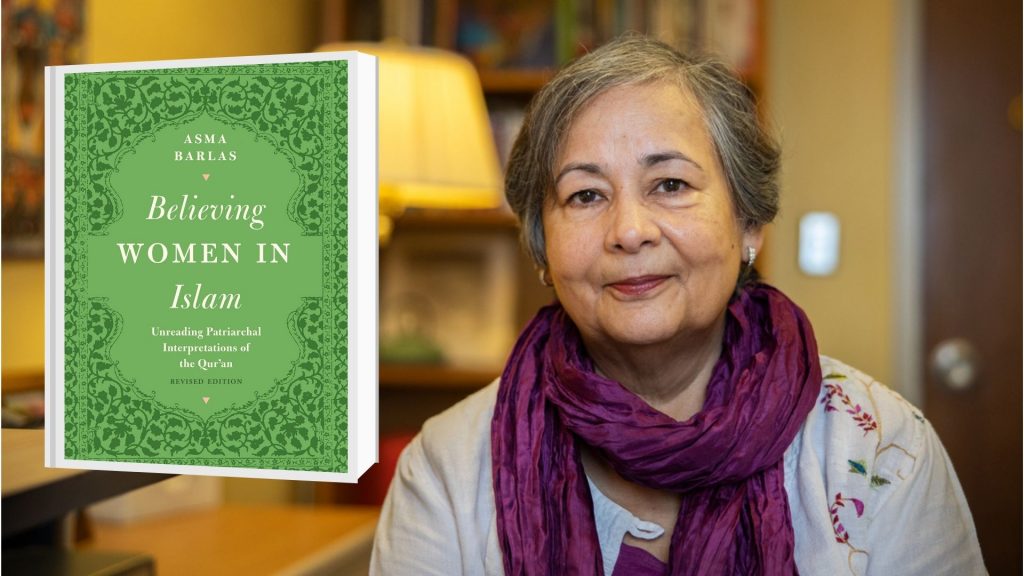
Asma Barlas was one of the first women to be inducted into Pakistan’s foreign service in 1976. Six years later, she was dismissed on the orders of General Zia ul Haq. Barlas joined the politics department of Ithaca College until she retired this year. She was the founding director of the Center for the Study of Culture, Race, and Ethnicity. She will talk with Sara Jamshidi about a fresh look at the interpretations of the Qur’an, Islam’s holy book.
Asma Barlas
| Asma Barlas: Ithaca College |  |
Amazon – Does Islam call for the oppression of women? Non-Muslims point to the subjugation of women that occurs in many Muslim countries, especially those that claim to be “Islamic.” On the other hand, many Muslims read the Qur’an in ways that seem to justify sexual oppression, inequality, and patriarchy.
Taking a wholly different view, Asma Barlas develops a believer’s reading of the Qur’an. She explains that the radically egalitarian and antipatriarchal nature of the Qur’an’s teachings.
Beginning with a historical analysis of religious authority and knowledge, Barlas shows how Muslims came to read inequality and patriarchy into the Qur’an in order to justify existing religious and social structures. She, then, demonstrates that the patriarchal meanings ascribed to the Qur’an are a function of who has read it, how, and in what contexts.
She goes on to reread the Qur’an’s position on a variety of issues in order to argue that its teachings do not support patriarchy. To the contrary, Barlas convincingly asserts that the Qur’an affirms the complete equality of the sexes, thereby offering an opportunity to theorize radical sexual equality from within the framework of its teachings.
This new view takes readers into the heart of Islamic teachings on women, gender, and patriarchy. The reader will understand Islam through its most sacred scripture, rather than through Muslim cultural practices or Western media stereotypes.
For this revised edition of Believing Women in Islam, Barlas has written two new chapters―“Abraham’s Sacrifice in the Qur’an” and “Secular/Feminism and the Qur’an”―as well as a new preface, an extended discussion of the Qur’an’s “wife-beating” verse and of men’s presumed role as women’s guardians, and other updates throughout the book.
Please Pledge to Our Peace Journalism.
Goltune is editorially independent. We set our agenda. No one edits our editors. No one steers our opinion. This is important as it enables us to stay true to our values.
Every contribution we receive from readers like you, big or small, goes directly into funding our journalism. Please support Goltune, large or small.
Send your contributions to our PayPal account: [email protected]
Or, Click the link to pledge your support.
Thank you,
Goltune Editorial Team






